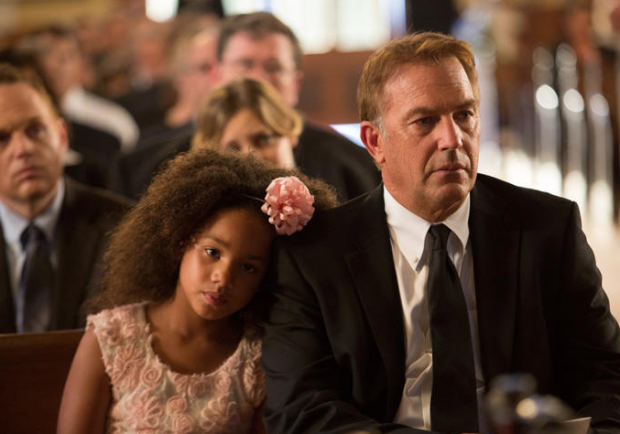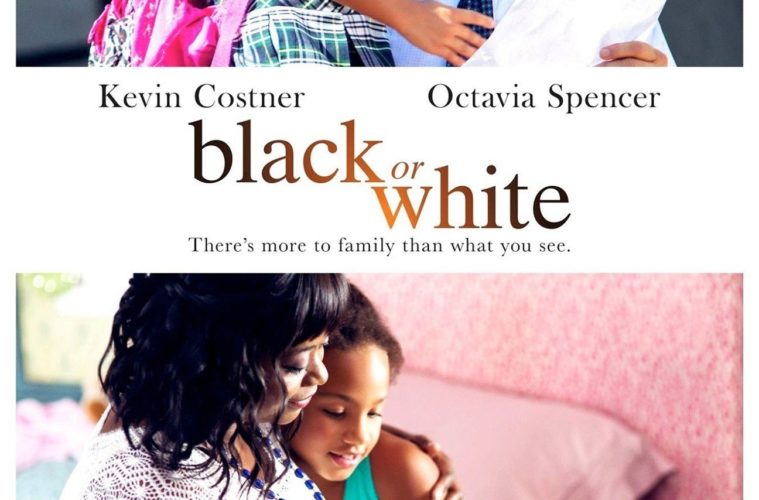With subtle nods to classic Hollywood melodramas, Black or White is a classical contemporary social issue film with notes of Douglas Sirk, wrapped in a courtroom drama. As far as legal procedurals and family dramas go, Black or White is a minor success. It’s entertaining and engaging in passages despite a few supernatural flashbacks that muddy the narrative in a convenient and cheap way.
Kevin Costner gives one of his best performances as Elliot Anderson, a high-functioning alcoholic lawyer who loses his wife Carol (Jennifer Ehle) in a car accident. Carol does return from time to time to aid Elliot through the trial and his own demons in dream sequences that do not entirely gel with the film’s more realistic qualities. There is a pay-off in a sequence that seems required, although I’m not so sure this is part of the true story the film is allegedly based upon.

Elliot and Carol care for their biracial granddaughter Eloise (Jillian Estell), whom Elliot – not without severe intoxication – must break the news to the follow day. At the wake, a custody battle starts to brew between Elliot and Eloise’s grandmother Rowena Jeffers (Octavia Spencer), a South Central entrepreneur whose home is considerably livelier than Elliot’s McMansion. Complicating matters is the high-powered lawyer and Rowena’s baby bother Jeremiah (Anthony Mackie). Rowena makes her power known as both sides gear up for a custody battle in front of a black female judge (Paula Newsome), who proves to be impartial.
Filled with excellent character moments, writer-director Mike Binder essentially restricts the storytelling to Elliot’s perspective. Costner here is excellent although the restricted perspective seems problematic. With substantial resources to care and educate Eloise – including hiring Duvan (Mpho Koaho), a tutor who provides some comic relief – there is little doubt how this case will evolve. Even worse is a change in petition for custody to Reggie (Andre Holland), the crack-addicted absentee father.
Black or White is an emotionally manipulative piece of work at times; while the courtroom drama proves to be effective, it’s not simply enough to say both sides have good intentions. Elliot and Rowena certainly do, but each play their part. The timing of the picture is curious: arriving twenty years after the Halle Berry/Jessica Lange custody battle picture Losing Isaiah, Black or White seems like a politically correct artifact of the 1990’s.
I’ve always found Binder to be a writer-director of interest, but despite several interesting elements, his latest drama is unfortunately lacking a diversity of perspective. Troubling is the sequence in which Eloise is sent to court-mandated counseling sessions, which seem to uncover repressed emotions that Elliot cannot process or understand. Black or White seems to be an earnest picture, but one that’s sanitized and reduced to story economy. Entertaining and enduring as a courtroom drama and a character study for Elliot, it believes its heart to be in the right place, and it is, but as Elliot and Rowena learn, that’s not quite enough.
Black or White is now playing in wide release.

